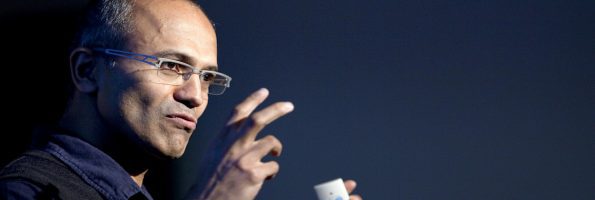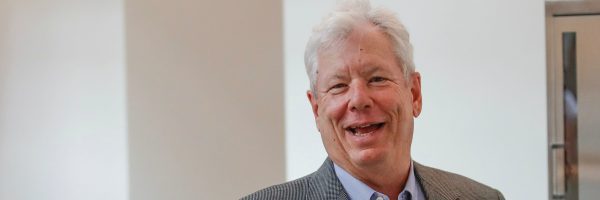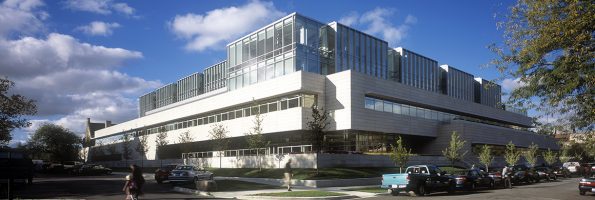Getting Your Money’s Worth: The Return on Investment of the Chicago MBA

Although a growing number of business schools throughout the country are offering part-time or Flex MBA programs, many ambitious business students still choose to pursue their education full-time. However, the often high price of tuition combined with two years of lost income can be a huge deterrent in students choosing a full-time MBA program.
Although the thought of taking two years off from a career may be daunting—especially when it comes to a quickly growing city like Chicago—prospective MBAs should also keep in consideration one of the benefits of having an advanced degree: a salary bump. Considering this, students can better evaluate the true return on investment (ROI) program full-time MBA and make smart decisions about where their money will go farthest.
Don’t let the high price tags of MBA programs in a major business city Chicago scare you away. Below are the Chicago business schools that offer students the best ROI.
Kellogg School of Management – Northwestern University
Northwestern University’s Kellogg School of Management boasts one of the highest ROI’s in the world, ranking fourth overall among the world’s best business schools on Forbes recently released list of the best full-time MBA programs in the U.S. Forbes‘ ranking is weighted specifically by how well compensated graduates are several years after earning an MBA.
Forbes ranking notes that 2012 MBA graduates are now making an average of $84,800 in their return on investment. While several business schools will often have a higher-level of compensation for in-state residents because of tuition differences, Kellogg tuition rates remain constant for both in and-out-of-state applicants. On average, students earn around $80,000 per year prior to enrollment, which increased to an astounding average of $196,000 just last year. Most grads pay their entire tuition back less than four years after graduating.
YOU MAY ALSO LIKE: Kellogg Launches 10 New Courses
Booth School of Business – The University of Chicago
In 2016, the Booth School of Business at the University of Chicago topped the ValueWalk list for having the highest return on investment in the world. Comparing the relatively low cost of a Booth MBA (around $65,000-70,000) with graduate salaries of up to $150,000 or more, Booth graduates will have paid for their degree twice over by the time they have completed their first year of work. Booth graduates are also likely to find work quickly—within three months of graduation, 98.4 percent of all MBA graduates had secured job offers. Booth alumni also find many of their post-graduate opportunities through a broad network of alumni and career support at the university. In 2016, the university was responsible for facilitating 75.2 percent of student’s new jobs.
Lake Forest Graduate School of Management
The Leadership MBA at Lake Forest Graduate School of Management current tuition is $55,600 per year. According to PayScale figures, Lake Forest MBA grads earn around $107,000 annually—a difference of over $51,000. Graduates from the LFGSM are spread throughout the globe, living in all 50 states and in 15 countries around the world. Alumni from the MBA program hold positions as CEOs of major companies, elected officials, entrepreneurs, and leaders in a wide variety of industries.
Alumni Spotlight: Microsoft CEO Satya Nadella – University of Chicago Booth School of Business

Once a ferocious beast in the kingdom of tech with massive product launches and Antitrust sagas, it could be argued that Microsoft has spent the first two decades of the 21st century in search of solid ground. The Steve Balmer era, which focused on “devices and services,” brought us the Xbox, the Surface, and the acquisitions of Skype and Linkedin. Wired posits that the fall of Microsoft “stems from its attempts to lock users into its products by refusing to work with competitors,” coupled with a series of “me-too hardware products,” like the Zune and the Kin. There’s also Bing and MSN, which are practically non-entities compared to their competition.
In the last three years, CEO Satya Nadella has been a relevatory savior for the company, spearheading a massive pivot away away from hardware and toward cloud computing and AI. So far, so good. Company shares reached record highs since 1999 and its cloud is valued at a $14 billion annual run rate, which places Microsoft neck and neck with Amazon Web Services, if you include Microsoft Office 365. That said, Nadella remains unphased by the numbers, as he tells the Economist, “When you have a core that’s growing at more than 20 percent, that is when the rot really sets in.”
Let’s take a deeper dive to find out more about Nadella’s past, present, and future.
Learning at Chicago Booth
Nadella’s tenure at Microsoft is inextricably linked with his University of Chicago Booth School of Business education. In fact he started both at the exact same time, in 1992. Instead of opting out of one for the other, he enrolled in Booth’s Weekend MBA program and flew from Seattle to Chicago every weekend for two-and-a-half years.
Nadella believes his Booth MBA was instrumental in giving him the “knowledge and confidence to tackle complex questions at the intersection of business and technology,” according to a UChicago profile. Nadella cites Steven Kaplan’s entrepreneurial finance class as particularly influential on his ability to “evaluate new business opportunities at Microsoft.” On Nadella, Kaplan spoke highly: “He can take a situation and analyze and articulate the issues involved. He can both write well and understand the case quantitatively.”
Wired traces Nadella’s “clarity of vision and empathetic listening style” to his firstborn son Zain’s cerebral palsy, which helped Nadella “see beyond himself and compelled him to force-rank his daily priorities so that he could meet his son’s needs and still perform his job—the same skill so necessary to effective management.” He tells Wired:
“I think back to how I thought about work before and after, and this notion of the words you say and what they can do to the other person. How can you really change the energy around you? It’s a thing that started building in me, and I started exercising it in my day job. It made a lot of difference to how I felt when I went back home. So much of it is mental attitude.”
Early Days at Microsoft
In 2015, Nadella told UChicago Booth Magazine, “Having grown up in the company, what is it 23 years or so, I always come back to the very first thing Microsoft did, the BASIC interpreter. It was this notion of empowering others to do great things.”
Nadella progressed quickly through company ranks. His first major notch on his belt was Windows NT but played significant technical roles in Bing, MSN, and Microsoft’s advertising systems. UChicago Booth Magazine pinpoints Nadella’s real contribution to the company during his tenure of Executive VP of cloud and enterprise businesses.
“At Microsoft, Nadella is navigating a rapidly shifting technology landscape, in which customers have been moving away from traditional desktop computers, toward nimbler mobile platforms such as tablets and smartphones.” Nadella says, “The only way you’re going to have that mobility of the human experience—not the device—is by having cloud orchestrate the movement.”
CEO
When the Nadella era began, he publicly invoked Nietzsche when he said Microsoft must have “courage in the face of reality,” according to Wired. His approach to steering Microsoft is nothing if not rooted in reality. Wired compared his Microsoft strategy to those of “the Silicon Valley startups that have eclipsed it” in which the change is cultural, not just organizational. The Economist writes that Microsoft is much more of a “full stack” firm, in which it “not only writes all kinds of software, but builds its own data centers and designs its own hardware.”
Nadella tells UChicago Booth Magazine, “My vision is to take that productivity and empowerment of individuals and organizations and express it in this new world, which is mobile-first, cloud-first.”
Nadella jettisoned the company’s R&D process in favor of a more transparent, open-ended model, which is perhaps in response to such New Coke-style abominations as the Microsoft Courier. He encourages execs to work with people outside their divisions, whose lines of demarcation have become increasingly ambiguous.
He’s pushing engineers and researchers from disparate parts of Microsoft to work more closely together—even wrangling Bill Gates back into the saddle as a part-time technical adviser to motivate his team. “When I say, ‘Hey, I want you to go run this by Bill,’ I know they’re going to do their best job prepping for it,” he tells Wired. Nadella described Microsoft’s Skype Translator, which offers real-time translation of multilingual chats, as the apotheosis of his cooperative company-wide strategy.
The Future
Nadella tells UChicago Booth that his overarching vision for Microsoft is to adapt to the dialogue between culture and technology but to push for a more productive, harmonious conversation. In March, Nadella shared his vision for a new “platform-neutral” Microsoft with the announcement that the company would soon launch Word, Excel, and PowerPoint editions for the iPad.
“Technology has always led us to have better lives [but] you can measure whether you’re doing anything useful. Do you feel a little stretched? If not, there’s something wrong.”
Chicago Booth Professor Richard Thaler Takes Home Nobel Prize in Economics

A professor from the University of Chicago Booth School of Business has won top honors in the field of economics. According to a press release, Richard Thaler was awarded the Sveriges Riksbank Prize in Economic Sciences in Memory of Alfred Nobel 2017. Continue reading…
How the Chicago Booth School of Business Helps Low-Income Applicants

U.S. News and World Report lists University of Chicago’s Booth School of Business among its top three best business schools in the country. But with the school’s estimated tuition (including living expenses) for the 2017-18 year at $103,759, Booth may not sound like a practical option for a number promising candidates. Though the $126,937 average base salary of graduates is definite proof of return on investment, for many, the cost of tuition may make the idea of earning a Booth MBA seem impossible. Fortunately, the myriad loan and scholarship options available at Booth may make a Booth MBA more feasible for students from all economic backgrounds.
Those of you craving a challenging higher education experience at one of the most prestigious institutions in the U.S. can breathe a sigh of relief. Below, we’ve laid out some of the resources available to help low-income applicants fund their MBA education at Booth School of Business.
Scholarships and Fellowships
Though Booth does not offer need-based financial aid, there are a plethora of merit-based scholarships and fellowships available to promising students. According to the school’s website, awardees are chosen based on the quality of their interview, their academic merit, their prospective concentration, competitiveness, career goals, and life experiences.
Specialized scholarships are available to minority students, veterans, and students with outstanding scholastic achievements. There are also industry-specific opportunities, such as the Canfield Private Equity Fellowship, which is specifically geared toward students with a background in private equity or investment banking, and even includes an internship at a private equity firm.
Take a look at some of the more prominent Booth scholarships available:
Chicago Booth Merit-Based Award
- This general scholarship is awarded to select students at the time of admissions based off, according to the school, “who have excelled in academics, work experience, and service to the community.”
George J. Stigler Fellowship
- This awarded is granted to students who excel in fields such as law, economics, and business.
Forté Foundation Fellowship
- This full-time MBA awarded is gifted to students through the forward-thinking Forté Foundation every year for students that “exhibited exemplary academic, team, community, and/or creative leadership, and are committed to advancing the interests of women in business.”
Distinguished Fellowship
- Students granted this high-ranking fellowship receive a “stipend and mentorship from Harry L. Davis, the Roger L. and Rachel M. Goetz Distinguished Service Professor of Creative Management.” The fellowship covers a student’s entire tuition.
David W. Fox Scholarship
- Another full-tuition award, the David W. Fox Scholarship is gifted to students that have previously or are currently serving in U.S. military. The school notes, “Students must demonstrate outstanding leadership, academic and extracurricular achievements, and a commitment to advancing the interests of those having served in the military.”
You can learn more about Booth’s scholarship opportunities here.
Loans
Booth students who are U.S. citizens or permanent U.S. residents can apply for a variety of federal or private student loans. Students looking for federal loans can choose a Direct Unsubsidized Loan or a Direct Grad PLUS Loan. To qualify for the Direct Unsubsidized Loan, students must be enrolled in at least 200 units each quarter. The maximum amount students can receive with this loan is $20,500 per year. Students who require more than $20,500 per year can apply for the Direct Grad PLUS Loan, which has a much higher cut-off. With this loan, students can receive up to the total cost of attendance (minus any other outside financial support). Students who opt for private, credit-based loans can also borrow up to the total cost of attendance, not including separate sources of financial assistance.
International students also have the option of leaning on loans to help finance their MBA. Booth provides loan options for international students without U.S. cosigners, as these students may not be eligible for private loan options. Those with U.S. cosigners, however, have a wide selection of private loan opportunities available to them.
New Chicago Booth School of Business Research Finds Internal Ethical Bias

New research published from the University of Chicago Booth School of Business is asking whether people chronically believe they are “holier” than others or “less evil” than them. That’s some pretty heavy stuff coming from one of the world’s most prestigious business schools. Continue reading…
Where To Earn The Best Chicago Economics MBA Degree

Pursuing an MBA is a great choice for business professionals looking for a strong foundation of business knowledge and for the chance to demonstrate leadership skills and take on management roles. However, while the MBA degree is often pitched as a more general and all-encompassing business education, the chance to concentrate or specialize your MBA allows students to have strong foundational knowledge while still proving to be an expert on a particular topic.
